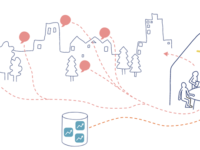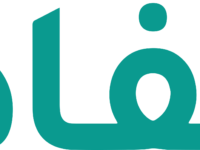Bağcılar Municipality has implemented an Algorithmic Decision Systems model for evaluating public services to maximizing the value proposition and satisfaction level at the minimum cost. This model enables the municipality to make decisions regarding the investment worthiness of its current and planned services and activities, as well as the direction of improvements needed in existing products and services, both in the eyes of stakeholders and the organization.
Innovation Tag: Data
Administrative burden is red tape - mandatory processes that continue to exist that have nothing to do with an internal policy's intention. It is experienced not only by citizens trying to access a service, but also public servants trying to deliver it. The Government of Canada is looking at streamlining its administrative policies relating to Service and Digital by applying an administrative burden lens to it.
The City of Austin launched Data Impact Visuals & Exploration (DIVE) to address low data literacy, limited accessibility, and lack of decision support tools. This project aims to empower diverse users with data skills, tools, and resources to make informed decisions. DIVE benefits community members, City staff, universities and funders. Innovative features include user-centric design, multiple components, a community-based approach and a long-term sustainability plan.
Virtual robots have been developed to simulate human interaction within the judicial processes of the Court of Justice of the State of Santa Catarina. The innovation involved the centralisation of services and tasks, which has relieved the workload of staff, allowing them to focus on more complex tasks.
"Påkobla Hjelpemiddel" (PH) is a digital solution developed from a digitalization department in Kristiansund Municipality, Norway. This innovative system addresses challenges in inventory, distribution, and logistics, improving the efficiency of delivering assistive devices. PH will be completed as a system in the end of 2024, but is today used by four municipalities that are a part of the innovation.
A flourishing private sector is essential to the development of Oman’s economy. Encouraging and helping foreign entrepreneurs and investors to set up and run businesses in Oman is vital to achieving this objective. The Oman Business Platform is a one-stop-shop platform that provides fast and easy access to all relevant e-services for foreign investors planning to set up and manage companies, helping to make Oman one of the most welcoming and efficient business environments in the world.
The Nafath app introduces a pioneering approach to authentication in Saudi Arabia. By leveraging biometrics and utilizing the mobile camera, it offers a secure and user-friendly app for authenticating user identity digitally. This innovative solution not only enhances identity authentication but also benefits all citizens and residents by simplifying digital interactions and empowering them to navigate the digital landscape with confidence, all through the convenience of their mobile devices.
The AI Competence Center of the Munich City Government is an innovative approach to creating a city-wide AI infrastructure. By providing expertise and support for the implementation of AI solutions, the center aims to increase the efficiency of city services and improve the lives of citizens. The center is unique in its role as a government-run AI center, which sets it apart from other AI initiatives.
Introducing a life event based services platform marks a shift to truly proactive, human/citizen-centric, and relevant public services in Estonia. This platform serves as a window for the citizens to seamlessly connect with institutions that deliver all essential information in one place at the time the citizen needs. Life event based services (like getting married, for instance) offer convenient, secure access to vital information, bringing together important events in an individual's life.
Case Study
Itla View – Crowdsourcing and AI-based digital tool for knowledge management and systems…

Itla View is a digital tool to help local services for families with children to manage their activities better using up-to-date data, to anticipate the need for corrective services and identify opportunities for preventive work. It enables different actors to form a shared holistic picture of the well-being of children, young people and families in their area. Itla View collects observations sent by field actors on the daily lives of children and families. It utilizes artificial intelligence to…


